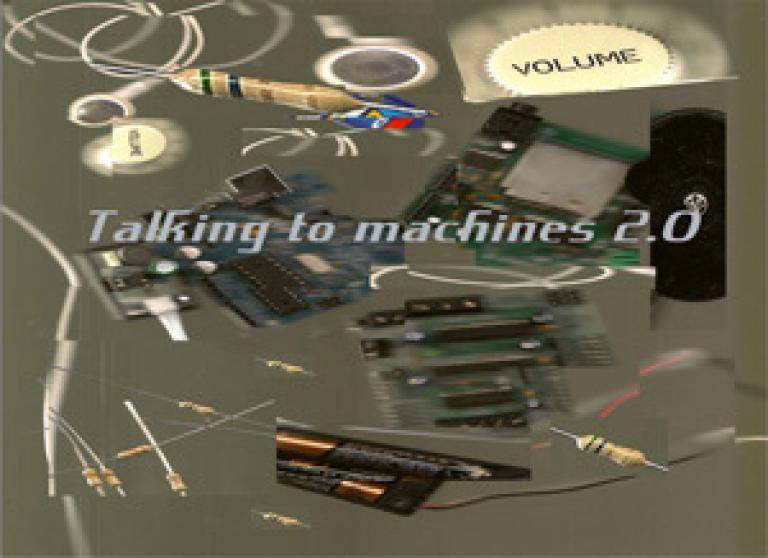For Talking to Machines 2.0 the aim will be to solidify and further develop what we have covered in the first workshop by discovering the powerful advantages of DSP programing. We will also focus on applying theses new methods to personal, in-class projects. This workshop is also open to individuals who have not taken Talking to Machines 1.0 provided that they already possess an underlying understanding of MaxMSP/Jitter.
The workshop will be given in French by a bilingual instructor.
Program
- Max
- Revisiting the basics covered in workshop 1;
- Learning autofill menu and filepath creator;
- Building tools for live performances (ie. Tap tempo/real time automations etc.);
- Morphing values with [autopattr];
- How to create our own standalone applications.
- MSP
- Revisiting the basics covered in workshop 1;
- Advantages of controlling everything with MSP;
- Building sequencers (2 types) directly into buffers for extra timing precision;
- Multi-samplers: the study of polyphony and voice allocations;
- Sculpting sound with Granular synthesis (building our own).
- Jitter
- Revisiting the basics covered in workshop 1;
- Building a visual granular synthesizer and understanding the importance of this method used by video players such as YouTube;
- Using poly~ for voice allocation;
- Using Jitter objects to parse data from the Internet.
- Arduino
- For personal projects, participants are free to use Arduino and the material (patches) covered in the first workshop, though I will not expand on the topic as Arduino and electronics are vast enough to cover an entire, separate workshop.
Prerequisites
- Be a professional artist, creator or cultural worker;
- Be a self-employed worker or a salaried employee in an enterprise not subject to 1% Training Investment*;
- Have followed workshop1 or basic knowledge of MaxMSP/Jitter;
- Attend every session.
* Any enterprise whose total payroll is $1.000.000 or more is subject to 1% Training Investment. (Emploi-Québec Program)
Number of participants
12 people
Cost
$120 – Payment required before Wednesday, September 7, 2011 at 5 pm.
Schedule
Saturdays and Sundays, September 10-11, 17–18, 24–25 and October 8-9 2011, from noon to 4 pm.
REGISTRATION
before Wednesday, September 7, 2011 at 5 pm
Please submit your registration request to:
Eddie Rodgers, New Media Lab Chief Technician
phone: 514-844-3250, ext. 230
lab@oboro.net
POLICY
Reservation / Payment
Reservations can be made by phone or email. Full payment must be made for inscription to be valid. You can pay by credit card (Visa or MasterCard), cheque or in cash. Inscription to a workshop is not transferable.
Cancellation / Refunding
OBORO does not refund inscription fees except in case of illness (with a medical note) or of absolute necessity. In such cases, inscription fees are transferable to another workshop or service offered by the New Media Lab.
Workshop Cancellation
OBORO reserves the right to cancel workshops at any time and without advance notice. In this case, inscription fees are fully refunded.

